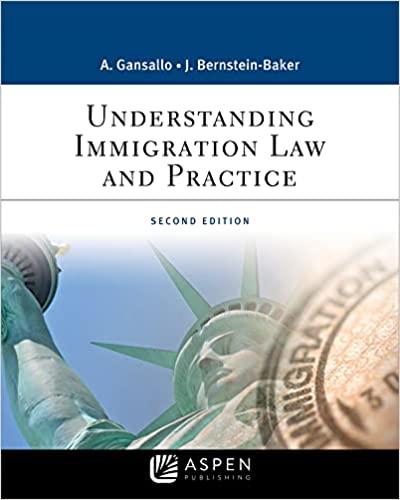Question
What values are you prioritizing to support your case? For example, Rosenbloom's 3 lenses of public administration theory or other lenses that think Rosenbloom missed.
What values are you prioritizing to support your case? For example, Rosenbloom's 3 lenses of public administration theory or other lenses that think Rosenbloom missed.
June 6, 2002
In light of several inquiries that HUD has received recently, the Secretary has asked me to share with you our views regarding the March 26, 2002, decision of the Supreme Court in HUD v. Rucker.
In Rucker, the Court unanimously affirmed the right of public housing authorities, under a statutorily-required lease clause, to evict entire public housing households whenever any member of the household, or any household guest, engages in drug-related or certain other criminal activity. The Rucker decision upholds HUD regulations that, since 1991, have made it clear both that the lease provision gives PHAs such authority and that PHAs are not required to evict an entire household - or, for that matter, anyone - every time a violation of the lease clause occurs.
Therefore, after Rucker, PHAs remain free, as they deem appropriate, to consider a wide range of factors in deciding whether, and whom, to evict as a consequence of such a lease violation. Those factors include, among many other things, the seriousness of the violation, the effect that eviction of the entire household would have on household members not involved in the criminal activity, and the willingness of the head of household to remove the wrongdoing household member from the lease as a condition for continued occupancy. The Secretary and I urge you to consider such factors and to balance them against the competing policy interests that support the eviction of the entire household.
Like Congress and the Supreme Court, HUD recognizes that PHAs are in the best position to determine what lease enforcement policy will most appropriately serve the statutory interest of protecting the welfare of the entire tenant population. I know that you will continue to act in a manner that protects that general welfare, while giving consideration - when you deem it appropriate - to the interests of individuals who share a household with the wrongdoer, but were otherwise unconnected with the wrongdoing.
Step by Step Solution
There are 3 Steps involved in it
Step: 1

Get Instant Access to Expert-Tailored Solutions
See step-by-step solutions with expert insights and AI powered tools for academic success
Step: 2

Step: 3

Ace Your Homework with AI
Get the answers you need in no time with our AI-driven, step-by-step assistance
Get Started


